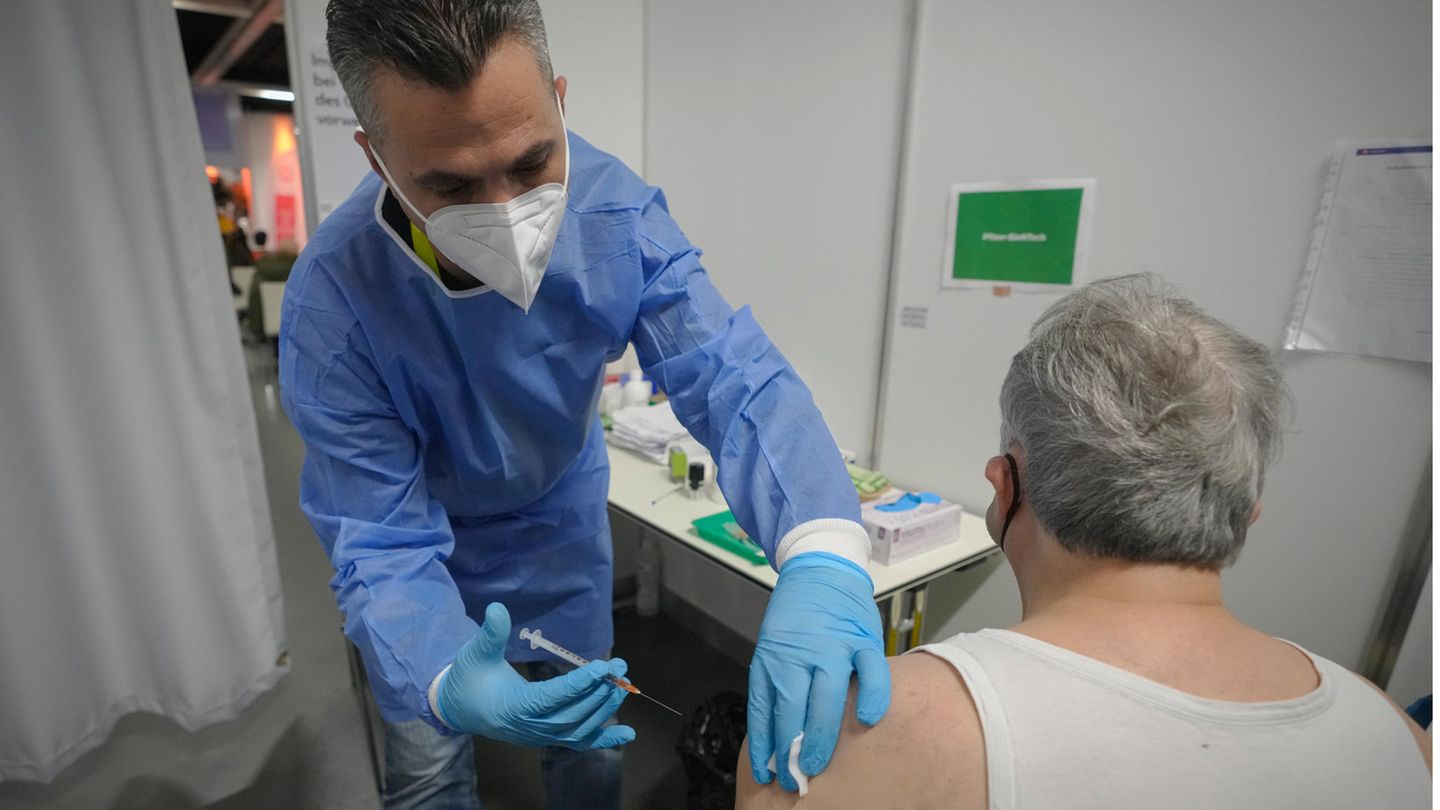As expected, Austria’s National Council has passed compulsory vaccination. From February, all adults over the age of 18 must be vaccinated against the corona virus. There should also be financial incentives.
As expected, the Austrian parliament passed a general vaccination requirement. 170 MPs had voted, 137 yes votes were received. 33 MPs voted against the law. The Bundesrat, i.e. the chamber of the federal states, probably still has to approve the law on February 3 – but that is considered a formality. The draft law by the governing parties ÖVP and the Greens stipulates that all adults must be vaccinated against the corona virus from February, otherwise fines may be imposed. SPÖ and the liberal Neos had previously assured their approval.
The step is the most far-reaching regulation in the EU so far, Italy and Greece only have compulsory vaccination for older people. The compulsory vaccination should apply to all citizens who are at least 18 years old. Exceptions are made for pregnant women and anyone who cannot be vaccinated for medical reasons. Those who have recovered are also exempt from the obligation to vaccinate up to 180 days after the Covid 19 disease. Violations of the obligation are subject to income-related penalties of up to 3,600 euros.
“Vaccination saves lives”
Austria’s Health Minister Wolfgang Mückstein (Greens) defended the corona vaccination requirement in the parliamentary debate as an act of solidarity and cohesion. “The more people have a corona vaccination, the fewer die as a result of a corona pandemic,” said the minister on Thursday.
The head of the opposition Social Democrats also backed the plan. “The vaccination saves lives, your own life and the life of others,” said SPÖ chairwoman and epidemiologist Pamela Rendi-Wagner. Although the government has missed a lot in the past two years, the vaccination gaps can now only be closed with compulsory vaccination. The liberal neos called for a roadmap for lifting restrictions on freedom. The right-wing FPÖ is the only parliamentary party against the move. “The introduction of this compulsion is a gigantic attack on the freedom of the people in Austria, an attack on the human dignity of the population,” said FPÖ leader Herbert Kickl.
The law is to be implemented in several stages. Random checks by the authorities are not planned until mid-March. For example, the police should also check the vaccination status during their operations. There has also been criticism from the police union for this additional task. The originally planned complete control by comparing the population register with the vaccination register is only intended as an option. This measure should be made dependent on whether the vaccination rate increases significantly, as hoped.
Hardly any law “prepared so elaborately”
The government of the ÖVP and the Greens had long ruled out compulsory vaccination. A change of strategy took place in November 2021 in the fourth Corona wave. The three-week lockdown that was re-imposed at the time is said to have been the last exit restriction, so it is hoped. The character of the original draft law was also significantly changed under the impression of a record number of opinions. Instead of being automatic, the law is now characterized by flexibility, according to a recent parliamentary hearing.
“I can hardly remember a law that was prepared in such a complex manner,” constitutional lawyer Heinz Mayer told the German Press Agency. The deadline of mid-March to be able to catch up on the vaccination without being punished is appropriate. The Minister of Health is also flexible when it comes to the group of approved vaccines, which can be selected according to the latest scientific findings. Admittedly, opponents of vaccination would probably try tens of thousands of procedures, but they would have to justify this well in each case. “It’s not enough to say, ‘I’m not getting vaccinated, the law is unconstitutional,'” Mayer said.
The legal prospects are also good at European level in the event of a dispute. “The chances are intact that it will hold up before the European Court of Human Rights,” Mayer said.
Incentives for vaccination
Immediately before the vote, the conservative-green government, together with the opposition Social Democrats, also agreed on an incentive and rewards package to increase the vaccination rate. In addition, communities should be rewarded with funding if they achieve high vaccination rates. A total of around one billion euros is to be made available for these measures.
In the lottery, 500 euros can be won for each partial vaccination, which can be redeemed as vouchers in restaurants or shops. Not only those who decide late can take part, but also those who are already protected. Around every tenth stitch should be rewarded in this way. A total of 75 million euros will be distributed for communities with a vaccination rate of 80 percent, 150 million euros for 85 percent and 300 million euros for 90 percent.
Health Minister Wolfgang Mückstein (Greens) described a quota of 85 to 90 percent among the vaccinable population aged five and over as the target. It is currently around 75 percent. The vaccination rate of the total population is 72 percent.
Source From: Stern
David William is a talented author who has made a name for himself in the world of writing. He is a professional author who writes on a wide range of topics, from general interest to opinion news. David is currently working as a writer at 24 hours worlds where he brings his unique perspective and in-depth research to his articles, making them both informative and engaging.




